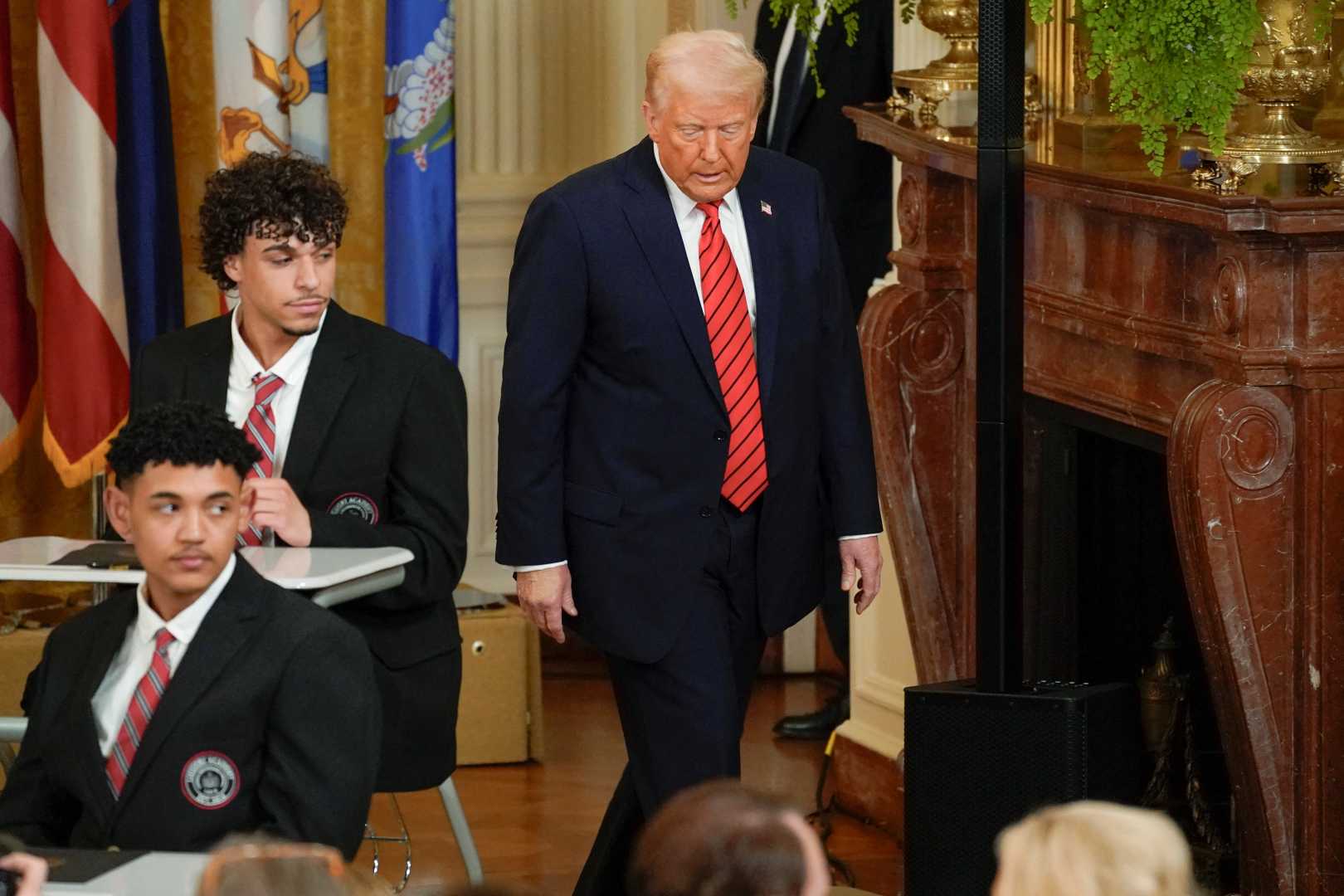Politics
Trump’s Push for Control Over Higher Education Sparks Backlash

WASHINGTON, D.C. — President Donald Trump is intensifying efforts to gain control over numerous colleges and universities, claiming it will promote free speech and combat antisemitism. However, many educational institutions are resisting these initiatives.
Trump’s agenda is linked to Project 2025, a plan unveiled two years ago aimed at increasing presidential power over education policies. Conservative activist Christopher Rufo has emerged as a key figure in rallying support for this movement, drawing significant attention to the administration’s directives.
‘Project 2025 is being carried out in almost every aspect of the Trump attacks on higher education,’ said Lynn Pasquerella, president of the Association of American Colleges and Universities.
The Trump administration’s proposals include the creation of a federally funded online university, the American Academy, designed to provide an affordable alternative to traditional college degrees. This initiative would be financed by taxing and suing elite schools like Harvard University over their endowments.
Harvard recently resisted a demand from the administration to address alleged antisemitism on campus, with President Alan Garber stating that no government should dictate the curriculum of private institutions.
Although the administration frames its actions as necessary to combat rising antisemitism, critics contend these efforts were planned long before the ongoing Israel-Hamas conflict.
Pasquerella noted the alarm among higher education leaders, as the current attacks reflect a long-standing resentment towards elite universities. Bruce Kimball, an emeritus professor at Ohio State University, echoed this sentiment, saying, ‘What we’re now seeing draws on 30 or 40 years of growing resentment in the public.’
Ryan Wells, a higher education professor at UMass Amherst, pointed to the rising costs of college education as a factor fueling public dissent.
Rufo, advocating for reform, stated that higher education institutions have devolved into ‘left-wing propaganda factories’ and emphasized that federal funding should be contingent on reforms.
In response, approximately 5,000 educators from universities across the country have united to address concerns over federal encroachment on academic autonomy, with calls to safeguard their institutions against what they view as undue government influence.
With the Department of Education investigating various institutions, including Harvard, UMass Amherst, and others in Massachusetts, the focus on Harvard represents a critical test for the broader landscape of higher education.
<p'If the federal government can bring Harvard to its knees, then there goes higher education,' Roberts Forde said, highlighting the uncertainty facing many institutions.












